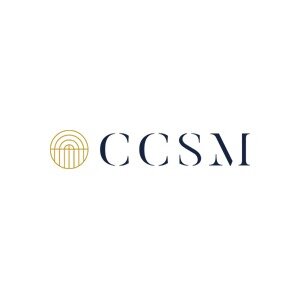Best General Litigation Lawyers in Porto
Share your needs with us, get contacted by law firms.
Free. Takes 2 min.
List of the best lawyers in Porto, Portugal
About Litigation Law in Porto, Portugal
Litigation law in Porto, Portugal, refers to the process of taking legal action through the courts to resolve disputes. As one of the major cities in Portugal, Porto has a well-established judicial system that addresses various legal conflicts, including civil, commercial, and labor disputes. The litigation process involves the preparation, filing, and investigation of a lawsuit, ultimately leading to a trial in front of a judge and, potentially, a jury. Porto's legal framework is grounded in the Portuguese judicial system, which is known for its structured legal codes and emphasis on mediation and arbitration as alternative solutions to disputes.
Why You May Need a Lawyer
Individuals and businesses may require legal assistance in Porto over several common issues. These include contract disputes, property disagreements, personal injury claims, employment conflicts, and commercial litigation involving breach of contract or shareholder disputes. Lawyers are also frequently sought for family law cases, such as divorce or child custody, and to navigate the complexities of tax or regulatory compliance. Legal representation can ensure that your rights are protected and that you navigate the legal system effectively, given the complexity and nuances of Portuguese law.
Local Laws Overview
Portugal has a civil law system influenced by Roman and German law traditions, characterized by comprehensive legal codes. In Porto, as in the rest of the country, the Civil Code, Penal Code, and Civil Procedure Code are key legislative texts relevant to litigation. Key aspects include the emphasis on mediation and arbitration to settle civil and commercial disputes before escalating to court trials. Additionally, Porto aligns with national Portuguese laws regarding data protection and electronic evidence, which are essential in the current digital age. It is important for litigants to be aware of specific regional regulations and the hierarchical structure of the courts, which include first-instance courts, appellate courts, and the Supreme Court of Justice.
Frequently Asked Questions
What is the first step in pursuing litigation in Porto?
The initial step typically involves consulting with a lawyer to assess the merits of your case. This is followed by filing a lawsuit, known as a "petição inicial," with the competent court.
How long does the litigation process usually take?
Litigation in Portugal can vary in duration, but most cases take anywhere from several months to several years, depending on the complexity and specifics of the case.
Can I represent myself in Porto courts?
While it is possible to represent yourself, known as "pro se" representation, it is generally not recommended due to the complexity of legal procedures and potential disadvantages in legal knowledge compared to opposing counsel.
What are the costs associated with hiring a litigation lawyer in Porto?
Legal fees can vary widely depending on the lawyer's experience, the complexity of the case, and the time involved. It is advisable to discuss fees and possible arrangements such as retainer fees during the initial consultation.
Are there alternatives to litigation available in Porto?
Yes, mediation and arbitration are recognized and encouraged as alternatives to litigation, often leading to faster and more cost-effective dispute resolutions.
What role does an appeals process play in Porto litigation?
If a party is dissatisfied with a court's decision, an appeal can be filed to a higher court. This process involves a review of the legal aspects of the case rather than a retrial of the facts.
What is the statute of limitations for filing a lawsuit in Porto?
It varies depending on the case type, but generally, for civil claims, it is three years, while for contractual disputes, it can extend up to twenty years. Specific legal advice should be sought regarding these deadlines.
How can I enforce a court judgment in Porto?
A court judgment can be enforced through legal enforcement proceedings. The process typically involves requesting the court to take specific actions, such as asset seizure or wage garnishment, to satisfy the judgment.
Do litigation lawyers in Porto handle international cases?
Many Porto lawyers have experience with international litigation, particularly regarding EU law. It is essential to consult a lawyer with the relevant expertise in international matters.
What should I prepare for my first meeting with a litigation lawyer?
Bring all relevant documents to your case, such as contracts, communications, and any previous legal correspondence. Be prepared to discuss your objectives and any questions you may have about the process.
Additional Resources
For those seeking further information or assistance, consider contacting the Order of Lawyers (Ordem dos Advogados), which is the professional body representing lawyers in Portugal. Additionally, the Portuguese Ministry of Justice provides resources and a guide to the judicial system. Local law libraries and university legal clinics can also offer legal guidance and services.
Next Steps
If you need legal assistance in litigation, your first step should be to schedule a consultation with a qualified lawyer in Porto. They can provide a detailed assessment of your case, explain your legal options, and guide you through the litigation process. Ensure you understand the fee structure and are comfortable with your lawyer's proposed strategy. Empower yourself by asking questions and staying informed throughout the process to assist in achieving the best possible outcome.
Lawzana helps you find the best lawyers and law firms in Porto through a curated and pre-screened list of qualified legal professionals. Our platform offers rankings and detailed profiles of attorneys and law firms, allowing you to compare based on practice areas, including General Litigation, experience, and client feedback.
Each profile includes a description of the firm's areas of practice, client reviews, team members and partners, year of establishment, spoken languages, office locations, contact information, social media presence, and any published articles or resources. Most firms on our platform speak English and are experienced in both local and international legal matters.
Get a quote from top-rated law firms in Porto, Portugal — quickly, securely, and without unnecessary hassle.
Disclaimer:
The information provided on this page is for general informational purposes only and does not constitute legal advice. While we strive to ensure the accuracy and relevance of the content, legal information may change over time, and interpretations of the law can vary. You should always consult with a qualified legal professional for advice specific to your situation.
We disclaim all liability for actions taken or not taken based on the content of this page. If you believe any information is incorrect or outdated, please contact us, and we will review and update it where appropriate.

















